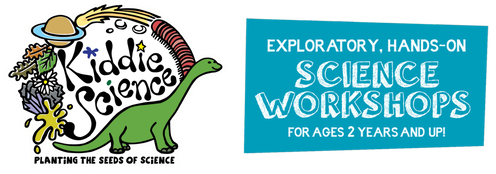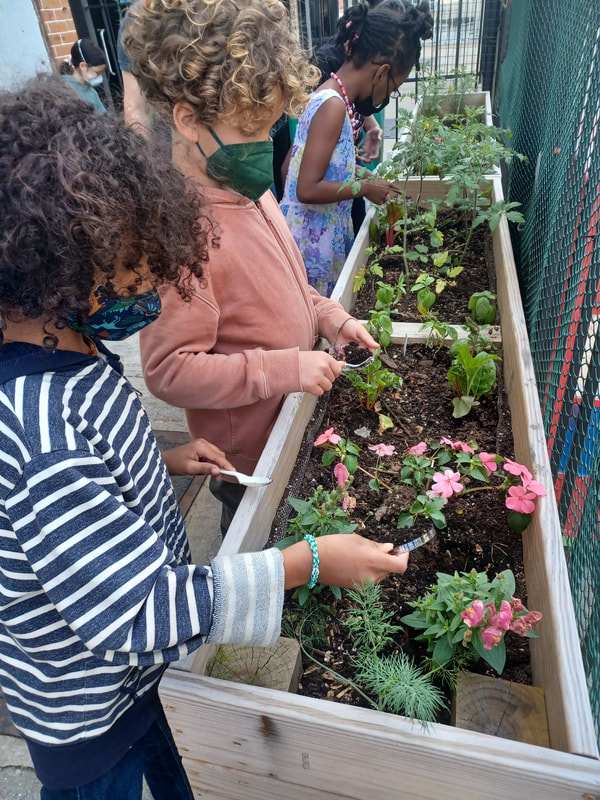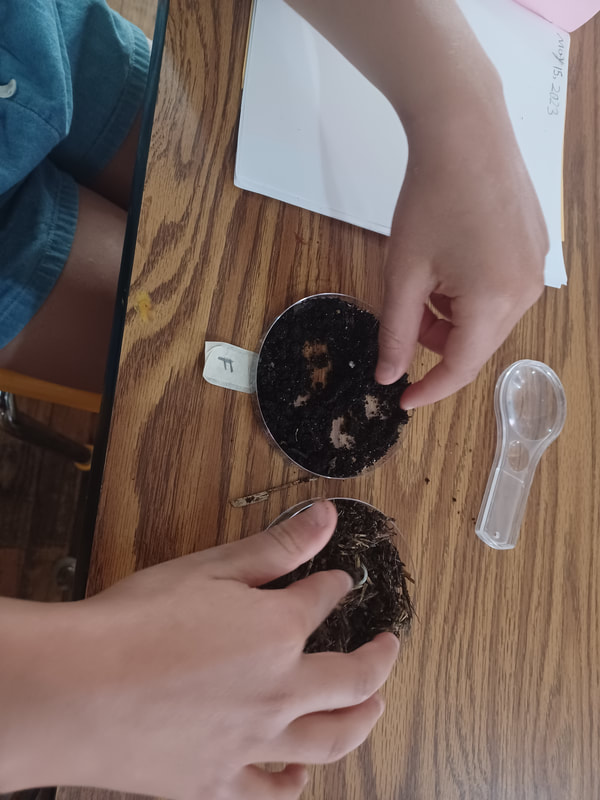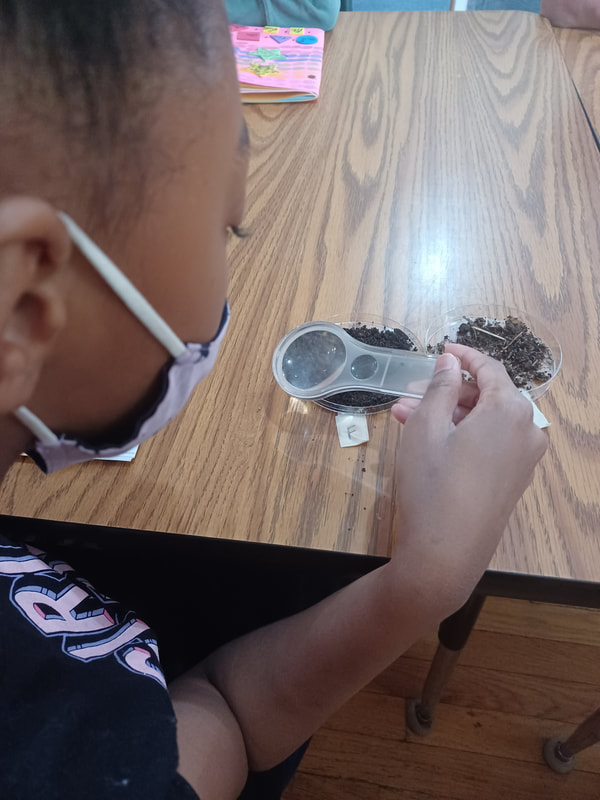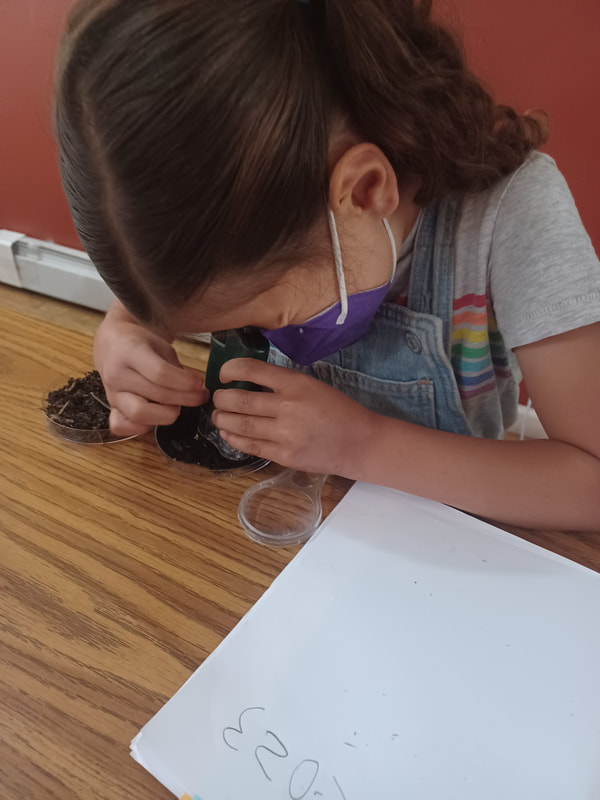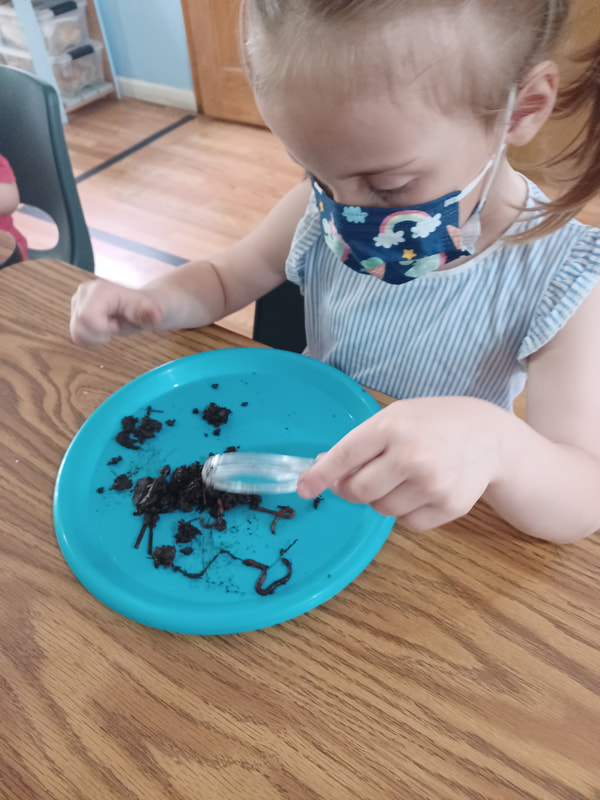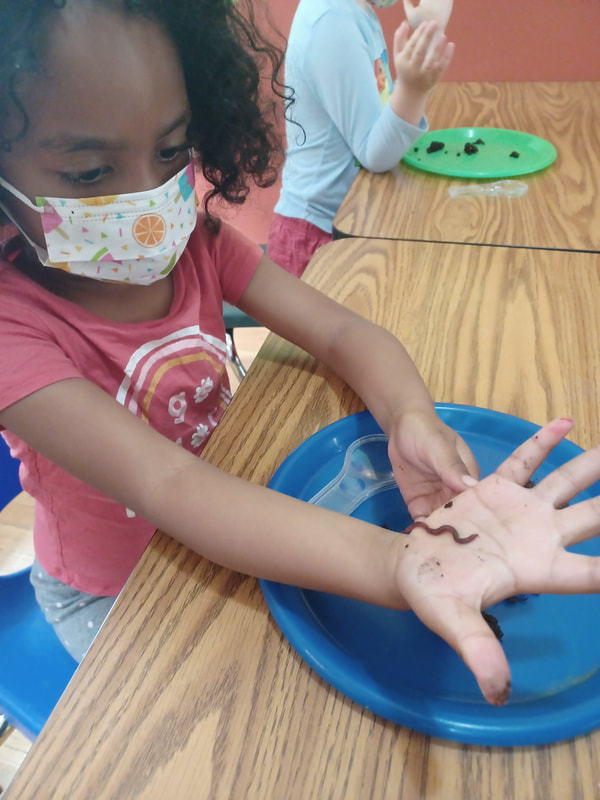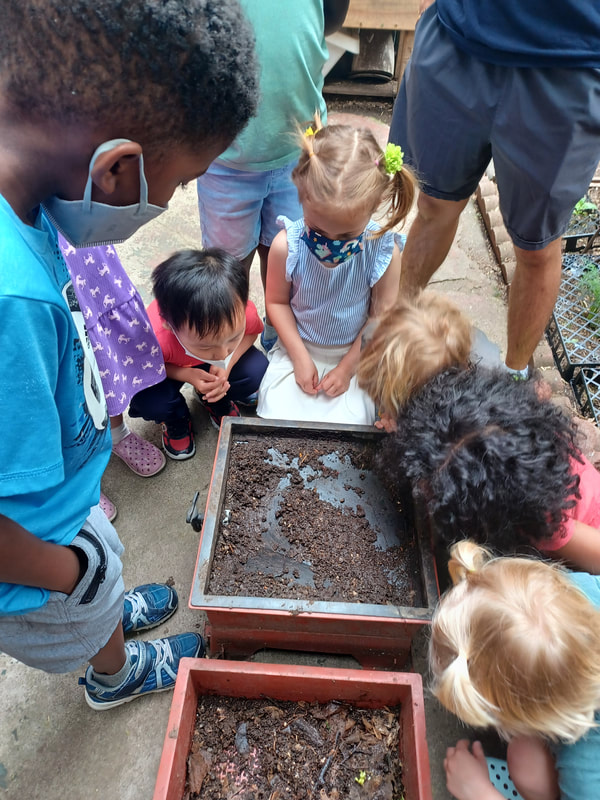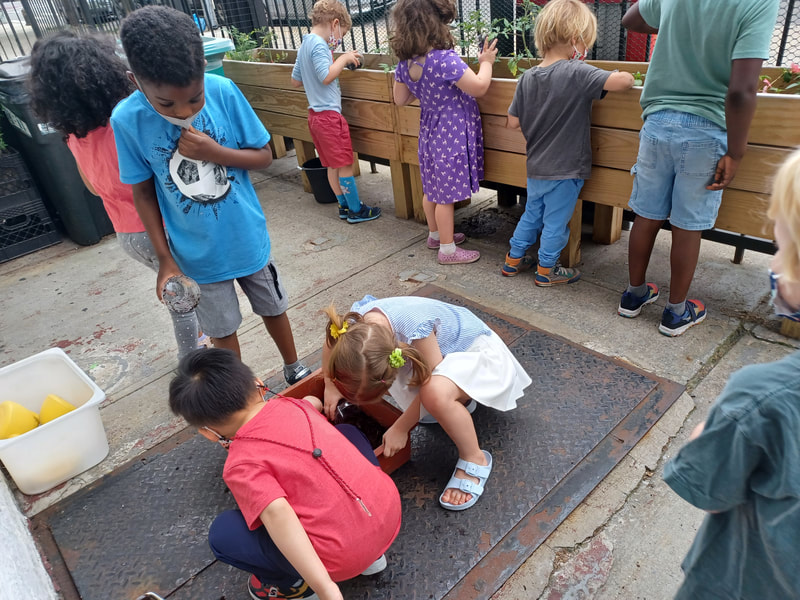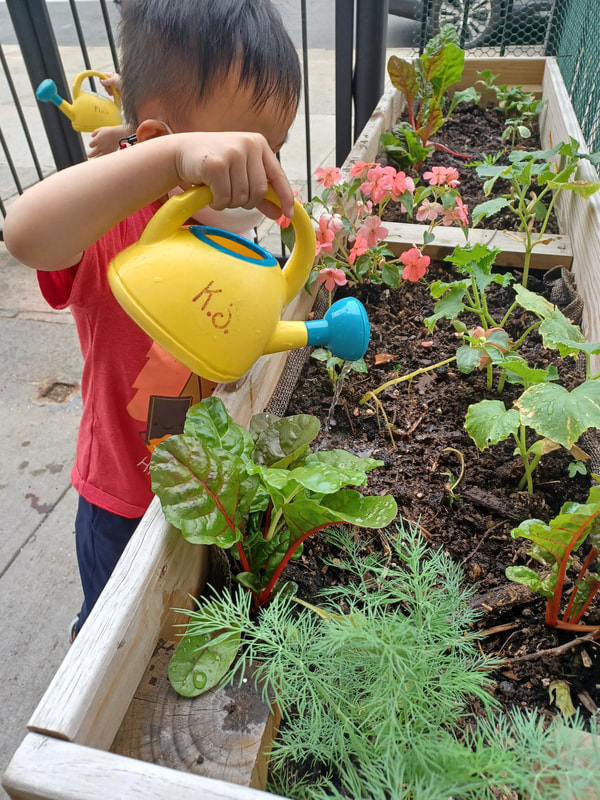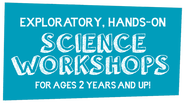We've already begun growing and learning from and with our garden! As we begin to care for our growing food, there's lots that can already be observed. Young scientists in the Home School STEAM Group recently explored soil composition and compared the soil in our back and front gardens. There are lots of differences, many of which we were able to observe with our magnifying lenses and handheld microscopes.
During Science Saturdays, we've been Diving Into Dirt and recently learned about compost and the role our worms play at the Lab. A lot of the garbage, and some of our science tools, are compostable. This means that instead of placing it in the garbage or recycling bin, we feed it to our worms. Over time, they eat the garbage and turn it into compost. Recently, young scientists added over thirty pounds of freshly harvested compost to our front garden.
This year, we are growing a lot more flowers in order to attract more pollinators. We also have different types of tomatoes, cucumbers, and zucchinis growing, along with dill, basil, and mint.
We can't wait to see how our garden grows this year!
During Science Saturdays, we've been Diving Into Dirt and recently learned about compost and the role our worms play at the Lab. A lot of the garbage, and some of our science tools, are compostable. This means that instead of placing it in the garbage or recycling bin, we feed it to our worms. Over time, they eat the garbage and turn it into compost. Recently, young scientists added over thirty pounds of freshly harvested compost to our front garden.
This year, we are growing a lot more flowers in order to attract more pollinators. We also have different types of tomatoes, cucumbers, and zucchinis growing, along with dill, basil, and mint.
We can't wait to see how our garden grows this year!
